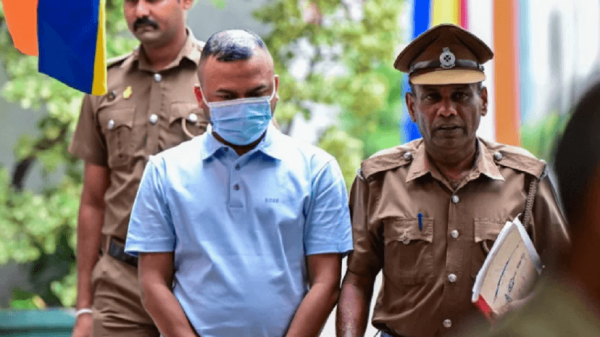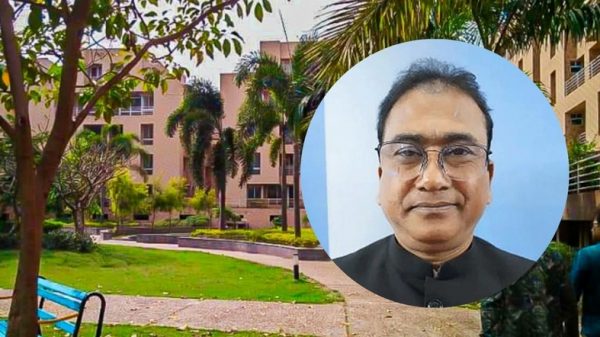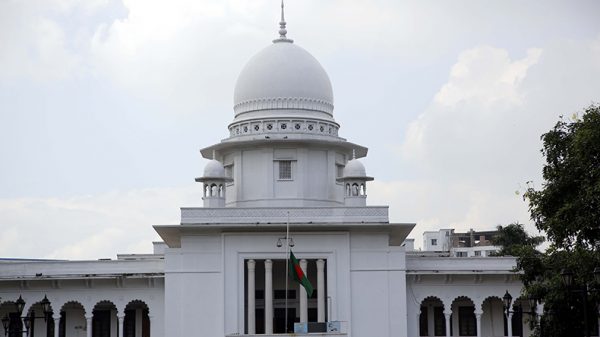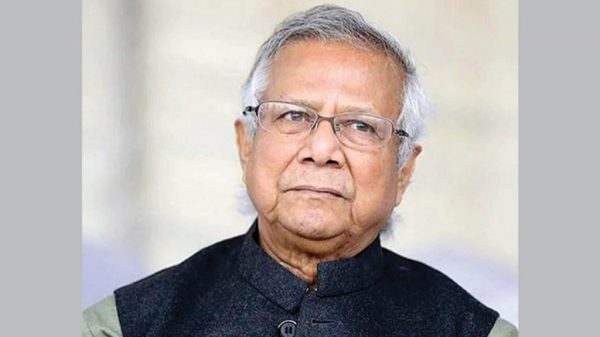Discretion results in discrimination

Shawdesh Desk:
Lawyers and right activists have expressed disappointment over discriminatory exercise of powers by judicial magistrates as some arrested crime suspects are allowed to be interrogated at the jail gate while others are sent to custody of investigations agencies for the purpose.
They want a guideline on ensuring the protection of human rights of the arrested people as it depends on the ‘discretionary powers of the magistrates’ as to who will be quizzed at the jail gate and who in police custody.
All citizens are equal before law and are entitled to equal protection of law, experts on Saturday told New Age referring to constitutional provisions.
On July 17, Barguna senior judicial magistrate Sirajul Islam Gazi remanded 22-year-old college student Aysha Siddika Minni in police custody for a five-day interrogation in the case on the murder of her husband Rifat Sharif.
On July 11, Dhaka senior special judge KM Imrul Kayes allowed Anti-Corruption Commission investigators to quiz suspended deputy inspector general of police Mizanur Rahman at the Dhaka Central Jail gate in connection with a corruption case.
On December 28, 2016, a court in Brahmanbaria asked the police to interrogate arrested Nasirnagar upazila Awami League former joint secretary Abdul Ahad, also a former union parishad chairman, at the jail gate in a case on attacking the Hindu community in Nasirnagar.
The judge rejected the police prayer to remand him in police custody for seven days for the purpose.
A Dhaka metropolitan magistrate court on February 19, 2019 asked the police to interrogate two activists of the ruling Awami League-backed student body Bangladesh Chhatra League at the jail gate for a day in a case filed over an internal clash of the organisation at Jagannath University.
Metropolitan magistrate Sadbir Yeachir Ahsan Chowdhury passed the order after police produced the two students of the university before the court with a three-day remand prayer.
A Chattogram court on November 29, 2018 ordered police to interrogate Bangladesh Nationalist Party vice-chairman Giasuddin Quader Chowdhury at the jail gate in a case filed against him over making derogatory remarks and threatening prime minister Sheikh Hasina with death.
Chief judicial magistrate Kamrunnahar Rumi passed the order after police produced Giasuddin before the court with a 10-day remand prayer.
A Dhaka metropolitan magistrate court on November 16, 2018 remanded seven BNP leaders and activists, including its national executive committee member Nipun Roy Chowdhury, also a lawyer, in police custody for five days for interrogation in connection with a case filed over a clash between BNP activists and police in and around the party’s central office at Naya Paltan in Dhaka.
Metropolitan magistrate Satyabrata Sikder had, however, ordered interrogation of two female leaders – Nipun and Jatiyatabadi Chatra Dal assistant general secretary Arifa Sultana Runa – by female police officials.
But Dhaka metropolitan magistrate Tofajjal Hossain on December 4, 2018 asked the police to interrogate Nipun and Arifa at the jail gate in a case on another clash in front of the party office on November 14, 2018.
‘Laws should not be applied differently with regard to powerful persons and general people as occurred in the cases of Minni and DIG Mizan,’ said Supreme Court lawyer and Bangladesh Bar Council legal aid executive member ZI Khan Panna.
He said that the judicial magistrate remanded the 22-year-old female student in police custody for a five-day interrogation by male police members without applying a judicial mind.
He also called the judicial magistrate’s order of remanding Minni in custody and subsequently recording her statement by a male magistrate as ‘noncompliance’ of the Chief Justice’s directive to the chief metropolitan magistrates and the chief judicial magistrates to assign female magistrates for recording the statements from women.
The jurist said that the judicial magistrate should have asked the police to interrogate Minni at the jail gate considering her age and to ensure transparency in the interrogation since there were many questions about police custody interrogations.
As there are many questions in people’s mind concerning police custody quizzing, the court should not allow the police to interrogate women in their custody, said former National Human Rights Commission chairman Md Mizanur Rahman.
He opined that it was the responsibility of the court to see to it that the citizens’ honour and social status were not damaged in any way.
Right activist and lawyer Syeda Rizwana Hasan said that ordering police custody for female citizens while allowing the Anti-Corruption Commission to interrogate DIG Mizan at the jail gate was ‘discriminatory ’.
As police custody questioning is not transparent and also not acceptable in any law, young female accused Minni should have been interrogated at the jail gate in the interest of transparency of her husband’s murder investigation, which has now become questionable, she observed.
Former senior judicial magistrate Azizur Rahman Dulu, now a Supreme Court lawyer, pointed out that there was no law or guideline on who should be remanded in police custody and who was to be interrogated at the jail gate.
As the magistrates exercise their discretionary powers while issuing directive on interrogation in police custody or at the jail gate, the authorities concerned should frame a guideline in this regard, he said.
Supreme Court spokesman Mohammad Saifur Rahman told New Age that remanding in police custody varied from case to case.
He, however, said that female accused were not usually remanded in police custody unless the case was a sensational one.























Leave a Reply